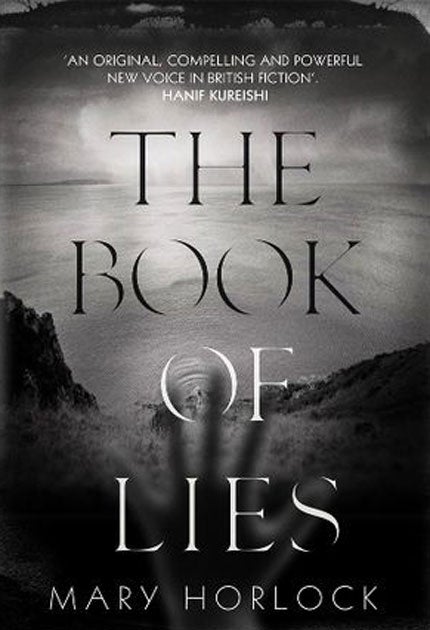The Book of Lies, By Mary Horlock
Island tale is full of guilty pleasures

History is often presented as immutable fact. But truth isn't transmitted through clear glass; it's refracted through interpreters, with perception depending on the beholder's lens. The difficulty of pinning down absolute truth lies behind Mary Horlock's assured debut. Set on Guernsey, the narration shifts between 15-year-old Cathy and her uncle Charlie, 20 years earlier. The two strands of the story both involve betrayal.
Cathy, whose father, Emile, an eminent local historian, has recently died, is convinced she has murdered her erstwhile best "friend", Nic. Charlie's statement relates to events on Guernsey during the German occupation of 1940-1945, when his and Emile's father died. Like Cathy, Charlie is convinced of his culpability.
Cathy's teenage voice is a joy – funny, endearing and credible, it bursts with attitude, perceives the shortcomings of her native island, coins malapropisms and wry neologisms ("Venerable Diseases"), and sneers at parochial locals. Cathy also supplies, with adolescent nonchalance, information about Guernsey's past she has uncovered from her father's work.
For all her tough talking, there are poignant moments: she realises that she never showed her love to her father. She is sculpted into a real person through complexities – her ability to lie and land someone in terrible trouble renders her fallible, while her devotion to her foul friend accentuates her vulnerability.
Charlie's account and Emile's letters provide chilling information about Guernsey's occupation: foreign workers were shipped in, overworked and starved to death. The locals didn't fare much better. With a German-islander ratio of around 1:1, it was difficult to resist, and they were reduced to eating pets.
Horlock avoids the trap of painting every German occupier as evil and every local as saintly: individuals obey or resist as much as they dare. Some might quibble at Charlie informing us at the start that he "killed his father", or the Donna Tartt-ish premise of Cathy's declaration that she killed Nic. Neither claim turns out to be the full story, but then the novel is about perceptions of truth. Horlock has created an authentic adolescent voice and, in the process, not only illuminated the history of a small island but also thrown light on the subjectivity of history, truth and memory.
Subscribe to Independent Premium to bookmark this article
Want to bookmark your favourite articles and stories to read or reference later? Start your Independent Premium subscription today.

Join our commenting forum
Join thought-provoking conversations, follow other Independent readers and see their replies